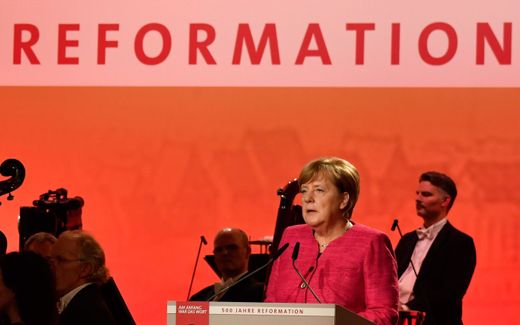The large Germany is shrinking, and that is a problem
20-02-2025
Central Europe
Dennis Pfeifer, IDEA

A man and his child in Germany. Photo Pexels, Tatiana Syrikova
Central Europe
Just before the general elections, Germany faces a demographic crisis.
Stay up to date with Christian news in Europe? Sign up for CNE's newsletter.
The biggest EU member state has been shrinking since 1972, writes Dennis Pfeifer (a German himself) in a comment for the Christian press agency IDEA. Why is this?
Germany is in the midst of a demographic catastrophe. Since 1972, more people have been dying in this country each year than children are being born. Without high immigration, the population would shrink drastically.
However, despite migration, the rapid ageing of society cannot be stopped. By 2035, when the last baby boomers will reach retirement age, one in four people will be over 67, while less than 20 per cent of the population will be under 20.
This means that our country is facing a creeping decline. There is a shortage of skilled workers, and our social systems are on the verge of collapse – with serious consequences for prosperity and social security.
Why are people having fewer and fewer children? For a long time, the family was considered the foundation of society. However, today, it is under constant attack. Life is becoming more and more expensive, and uncertain economic prospects are a burden for young couples.
More and more families depend on two incomes, which makes traditional models seem hardly livable. Housewife and mother? In our society, this is considered an outdated concept. Women are, therefore, having children later and later – or deciding against them altogether.
In a society that prioritises personal fulfilment over responsibility, family life is becoming less important. Committed relationships are becoming less common, marriages are breaking up more often, and the traditional family is losing its value. Parenthood is no longer seen as desirable but as a restriction. Or even as a threat to the climate. Behind the demographic crisis lies not only economic pressure, but also a profound change in values.
Cultural reorientation
One decisive factor is the progressive loss of religious ties. While in 1950, almost 96 per cent of Germans were still members of a church, today the figure is below 50 per cent – and the trend is rapidly declining.
Wherever Christian influence is waning, the conviction that children are a gift from God – and not just a private option – is also being lost. The Bible calls children a ‘gift from the Lord’ (Psalm 127:3).
But it has become an increasingly suppressed thought, as the current debate on abortion sadly demonstrates. Instead, material security and personal independence are at the centre. Values such as renunciation, responsibility and the passing on of faith are increasingly rare.
A country that decides against children decides against its future. It is not enough to create financial incentives – a genuine cultural reorientation is needed. The church and Christians must encourage people to start a family. It is more than a private way of life – it is a divine commission. Let us not let it die out.
This comment was translated by CNE.news and published by the German press agency Idea Pressedienst
Related Articles










